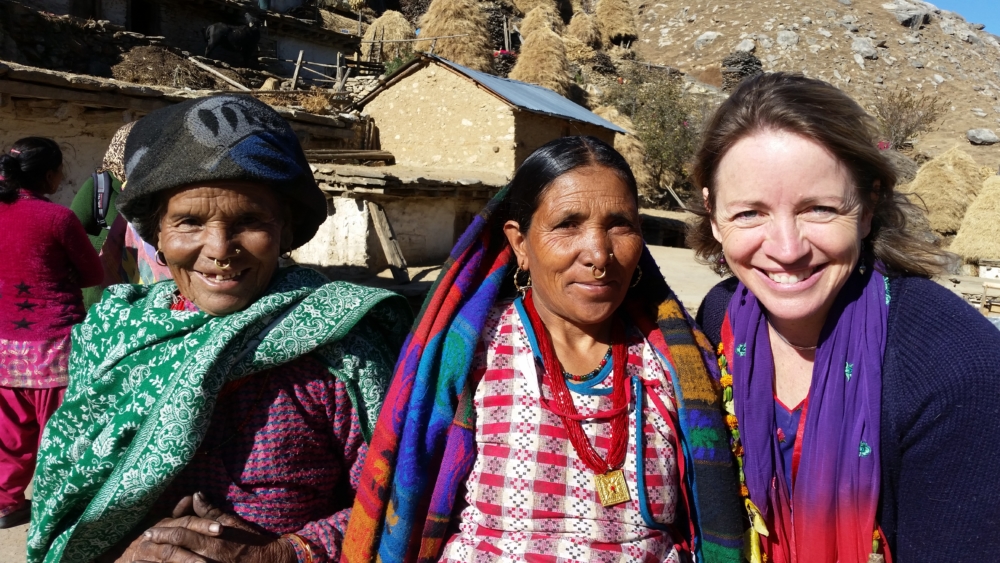I visited a bookshop in Sydney recently. I normally love bookshops. I love the quietness, the covers, the stories, the feel of the paper between my fingers, and the possibilities inside. But on my recent visit, I happened to notice the books on the table near the front door. They were all on the pursuit of individual ‘wellness,’ and how to live a ‘beautiful life’ – how to beat stress and illness and anxiety, through individual diet, sleep and exercise, and of course, once wellness is achieved, how to relax and lead a beautiful life.
Surely, every single day, we need more than a self-absorbed focus on individual wellness.
It’s a really nice idea. I picked up the books, one by one, and I agreed with the authors, generally. Exercise, sleep and a healthy diet are all wonderful things. I was once a physiotherapist, in a previous career, so I know this. But the truth is that no matter how much we exercise, or sleep, or eat chia seeds, we will still struggle. Our bodies here on earth are fragile. Even tomorrow, after eight hours of sleep and a healthy breakfast, our corneas may tear, our trapezius muscle may tighten, and our cruciate ligament may simply go snap, during our early morning run… or something worse may happen. The phone may ring, with news that our closest friend has stage 4 cancer, or our father is in intensive care, or someone we love is in desperate need. And beyond that, there’s our wider community, our neighbours, our country, our world, all of them desperately needing wellness. Surely, every single day, we need more than a self-absorbed focus on individual wellness.
My husband, Darren, and I spent six years serving in Nepal with the International Nepal Fellowship (INF), within a needy health system, and through the civil war. In those years, we worked as physiotherapists and we trained local physiotherapists. We felt immensely privileged to be there. Then late last year, we returned to Nepal to see the recent work of INF in the more remote areas, particularly in the region around Jumla, where only 8% of households have access to safe, nutritious food all year round, and where the life expectancy has been, until recently, in the 30s.
The 28-hour jeep journey to Jumla was definitely hair-raising! But the best bit was being able to visit two self-help groups in the region, run by INF.
The women said they have a voice now.
INF has been doing community health work in the area for 15 years, facilitating more than 200 monthly self-help groups. And there we were, sitting on one of the flat roofs in the village of Kalikakhetu, in a deep valley, and all the women of the village were assembled before us, wearing their bright red blouses and green skirts, and they told us that prior to INF’s involvement, very few of them could read or write. Child marriage was common, menstruating women were put in the goat yard, and they had problems with drinking water, irrigation, drainage and rubbish removal. Then INF helped them to make their own action plans, including educational support and income generation.
The women said they have a voice now. One lady in particular said, “Before INF came, we only cared about our own bodies, if we were sick. We didn’t care about the whole village. But now we do – we care about the whole community, and we solve our problems together, like water and hygiene and sanitation. Everything is different!”
I think, in the west, we need to hear that, again. Individual wellness is a worthy goal (although hard to achieve), but it can also lead to more and more intense self-absorption. And Jesus said, “As the Father has sent me, so I am sending you.” (John 20:21). He sends us out!
Cathy realised that being ‘well’ might not mean being able to walk.
Being back in Nepal, and then thinking about wellness at the bookshop, reminded me of one of my friends in Sydney. Cathy has spent more than 50 years in a wheelchair, living with polio. For the first 40 years, she said she struggled with wanting to be well. She always wanted to be a better shape, or a better friend, or a better person. Then ten years ago, she was reading John 5, where Jesus spoke to the paralysed man by the pool of Bethesda. Jesus asked the man, “Do you want to be well?” Cathy stopped in her reading. She wondered why Jesus asked him that. Wasn’t it obvious? Of course he wanted to be well! But then Cathy realised that she needed to ask herself that same question, and to explore what it meant for her to be well, in her wheelchair, as a loved child of God.
For the first time in her life, Cathy realised that being ‘well’ might not mean being able to walk. But she could still live a full life, and be comfortable with who she was, and use her gifts to love and serve the peoples of the world, from her wheelchair. My friend then trained as a hospital chaplain and she has been serving in an amazing way, at a hospital in Western Sydney, ever since. For her, it’s a beautiful life.
And so it is for us. When we each find true wellness in Jesus, in his gift of forgiveness of sins, and in his offer of life everlasting… then we long to share it with the people of the world, in all the ways he has gifted us to do so.
Do you want to be well, this year?
Naomi Reed is the author of ‘My Seventh Monsoon’ and eight other books. She now serves as an ambassador for the International Nepal Fellowship (INF).

